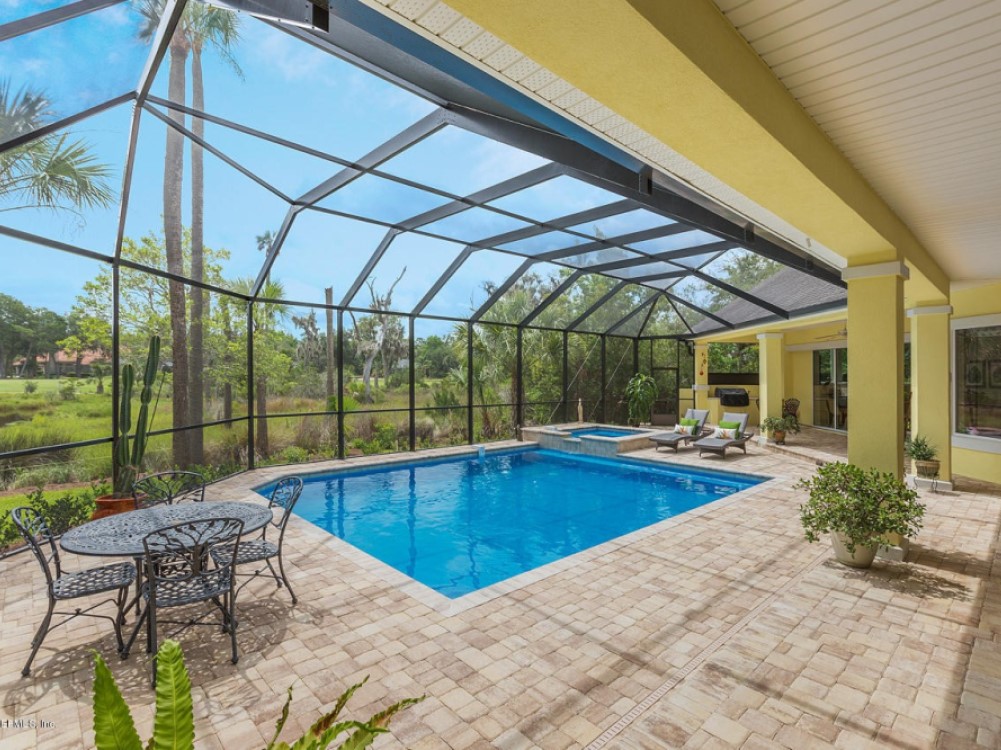Take It With a Rain of Salt
Sun, warm weather, and spending time with friends and family are what summertime is all about. The joy of lounging by the pool, taking refreshing dips, and hosting poolside gatherings is a quintessential part of the season. However, summer also brings its share of challenges, particularly in regions prone to afternoon storms. While some may believe that rain has little effect on a swimming pool, the reality is quite different. Rain can significantly impact your pool's water quality and overall condition, making it essential to understand these effects to maintain a clean and safe swimming environment.
Rainwater is naturally acidic, typically falling below 7 on the pH scale. This acidity can alter the chemical balance of your pool water, making it more corrosive. Corrosive water can damage the plaster surfaces of your pool and affect the longevity of your pool equipment. While a light drizzle might not cause noticeable harm, the heavy afternoon thunderstorms common in places like northeast Florida can introduce a substantial amount of acidic rainwater into your pool. This sudden influx can lead to significant fluctuations in your pool's pH levels, necessitating immediate attention and adjustment.
Moreover, rainwater can dilute the chemicals in your pool, reducing the effectiveness of chlorine and other sanitizers. This dilution can lower the chlorine levels, making it less effective at killing bacteria and algae, and can also reduce the salt levels in saltwater pools, hindering the salt system's ability to produce chlorine. Additionally, rain can introduce debris, algae spores, and other contaminants into the pool, further complicating maintenance efforts. Understanding these impacts and knowing how to address them promptly is crucial for keeping your pool in optimal condition throughout the summer months. Below are some factors on how rain can affect your swimming pool:
Effects of Rain on Your Pool
1. Chemical Dilution and pH Fluctuation
Rain can have a significant impact on the chemical balance of your pool, particularly through dilution and pH fluctuation. Understanding how rainwater affects these aspects is crucial for maintaining a safe and enjoyable swimming environment. When rainwater enters your pool, it can alter the delicate balance of chemicals that keep the water clean and clear. Here’s a closer look at how rain affects pH levels and salt concentrations in your pool.
pH Levels: Rainwater, being naturally acidic, can cause significant fluctuations in the pH levels of your pool. When rainwater enters your pool, it lowers the overall pH, making the water more acidic. This increased acidity can lead to corrosive conditions, which can damage the pool's plaster surfaces, tiles, and metal components over time. Corrosive water can also irritate swimmers' skin and eyes, making the pool less enjoyable. Regularly testing and adjusting the pH levels after a rainstorm is crucial to maintaining a balanced and safe swimming environment.
Salt Levels: In saltwater pools, heavy rain can dilute the salt concentration, which is essential for the pool's chlorination system to function effectively. The saltwater chlorinator relies on a specific salt level to produce chlorine, which sanitizes the pool water by killing bacteria and algae. When rainwater dilutes the salt levels, it can drop below the required range, hindering the chlorinator's ability to produce sufficient chlorine. This can lead to a decrease in water quality and an increase in the risk of algae growth and bacterial contamination. To prevent this, it's important to monitor and adjust the salt levels after heavy rainfall to ensure the chlorination system operates efficiently.
In summary, rainwater can significantly impact the chemical balance of your pool by lowering pH levels and diluting salt concentrations. These changes can lead to corrosive conditions and reduced chlorine production, both of which can affect the pool's surfaces, equipment, and overall water quality. Regular testing and prompt adjustments are essential to counteract these effects and maintain a safe and enjoyable swimming environment.
2. Reduced Chlorine Effectiveness
Rain can significantly impact the effectiveness of chlorine in your pool, which is essential for maintaining clean and safe water. Chlorine works by killing bacteria, algae, and other microorganisms that can make the water unsafe for swimming. However, when rainwater enters your pool, it can dilute the chlorine concentration, reducing its ability to sanitize the water effectively. Additionally, rain can introduce various contaminants that further challenge the pool's chemical balance. Here’s a closer look at how rain affects chlorine effectiveness and the potential consequences.
Dilution of Chlorine: Rainwater dilutes the chlorine in your pool, reducing its effectiveness. Chlorine is crucial for keeping the pool water clean by killing harmful microorganisms. When rainwater enters the pool, it lowers the overall concentration of chlorine, making it less effective at performing its sanitizing function. This dilution can lead to cloudy water and increase the risk of bacterial and algal growth. If the chlorine levels drop too low, the pool water can become unsafe for swimming, potentially causing skin and eye irritation or even infections. Regularly testing and adjusting chlorine levels after a rainstorm is essential to ensure the water remains clean and safe.
Increased Contaminants: Rain can introduce algae spores and other debris into the pool. These contaminants can come from the surrounding environment, such as leaves, dirt, and pollen, which are washed into the pool by the rain. If not treated quickly, these contaminants can lead to algae growth, making the water murky and potentially unsafe. Algae thrive in warm, nutrient-rich water, and the presence of rainwater can create ideal conditions for their growth. Once algae take hold, they can spread rapidly, turning the water green and slippery. This not only affects the pool's appearance but also makes it more challenging to maintain proper water quality. Promptly removing debris and using algaecides can help prevent algae growth and keep the pool water clear.
In summary, rainwater can significantly reduce the effectiveness of chlorine in your pool by diluting its concentration and introducing contaminants. These changes can lead to cloudy, unsafe water and promote the growth of algae and bacteria. Regular testing, prompt adjustments, and proactive maintenance are essential to counteract these effects and maintain a clean and safe swimming environment.
3. Algae and Bacteria Growth
Rainwater can introduce various contaminants into your pool, creating an environment conducive to the growth of algae and bacteria. These microorganisms can quickly turn your pool water from clear and inviting to murky and unsafe. Understanding how rain affects algae and bacteria growth is essential for maintaining a clean and healthy swimming environment. Here’s a closer look at how rainwater can contribute to these issues and what you can do to prevent them.
Algae Spores: Rain can bring algae spores into your pool, which can thrive if the chlorine levels are low. Algae are microscopic plants that can rapidly multiply in warm, nutrient-rich water. When rainwater dilutes the chlorine concentration in your pool, it reduces the effectiveness of this crucial sanitizer, allowing algae spores to survive and grow. Sunlight further accelerates algae growth, leading to green, slippery surfaces that are not only unsightly but also potentially hazardous. Algae can make pool surfaces slippery, increasing the risk of slips and falls. To prevent algae growth, it’s important to maintain proper chlorine levels and use algaecides as needed, especially after heavy rainfall.
Mold and Mildew: The altered pH and chlorine levels caused by rainwater can promote the growth of mold and mildew on pool tiles and surfaces. Mold and mildew thrive in damp, low-chlorine environments, and the introduction of rainwater can create ideal conditions for their growth. These fungi can appear as black, green, or white patches on pool surfaces, making the pool look dirty and uninviting. Mold and mildew can also produce unpleasant odors and pose health risks to swimmers, particularly those with allergies or respiratory issues. Regularly scrubbing pool surfaces and maintaining balanced water chemistry are essential steps to prevent mold and mildew growth. Ensuring proper water circulation and filtration can also help keep these fungi at bay.
In summary, rainwater can significantly impact the growth of algae and bacteria in your pool by introducing spores and altering the chemical balance. These changes can lead to unsightly and potentially hazardous conditions. Regular maintenance, including testing and adjusting chemical levels, using algaecides, and cleaning pool surfaces, is crucial to prevent the growth of algae, mold, and mildew, ensuring a clean and safe swimming environment.
4. Temperature Changes
Rainwater can have a noticeable impact on the temperature of your pool, which can affect the overall comfort and balance of the swimming environment. Understanding how rain influences pool temperature is important for maintaining a pleasant and consistent swimming experience. Here’s a closer look at how rainwater can alter your pool’s temperature and what you can do to manage these changes effectively.
Water Temperature: Rainwater is usually a different temperature than your pool water. Depending on the season and weather conditions, rainwater can be significantly cooler or warmer than the pool water. When cooler rainwater enters the pool, it can lower the overall water temperature, making the pool less comfortable for swimming. This sudden drop in temperature can be particularly noticeable after heavy rainstorms. Conversely, if the rainwater is warmer, it can raise the pool’s temperature, which might not be ideal during hot summer days when you rely on the pool to cool off.
The contrast in temperature between the rainwater and the pool water can also affect the pool’s chemical balance. Temperature changes can influence the solubility and effectiveness of pool chemicals, potentially leading to imbalances that require adjustment. For instance, cooler water can slow down the chemical reactions needed for effective sanitation, while warmer water can accelerate these reactions, leading to faster depletion of chlorine and other sanitizers.
To manage temperature changes caused by rain, consider using a pool cover when the pool is not in use. A cover can help maintain a more consistent water temperature by reducing heat loss and preventing the direct entry of rainwater. Additionally, regularly monitoring the pool’s temperature and making necessary adjustments to the heating or cooling systems can help maintain a comfortable swimming environment. If your pool is equipped with a heater, you can use it to quickly restore the desired temperature after a rainstorm. Conversely, if the pool becomes too warm, running the filtration system during cooler parts of the day can help lower the temperature.
In summary, rainwater can significantly impact the temperature of your pool, affecting both comfort and chemical balance. By understanding these effects and taking proactive measures, you can ensure that your pool remains a pleasant and inviting place to swim, regardless of the weather. Regular monitoring and adjustments are key to maintaining a consistent and enjoyable swimming experience.
Solutions and Maintenance Tips
With all the commotion that rain can bring, you might wonder if there's a solution. The answer is a resounding yes. At Coastal Luxury Outdoors, our technicians are experts in managing the effects of heavy rain on your pool system. They are equipped with the knowledge and tools to address any challenges that the Florida weather may present. You can rest easy knowing that your weekly technician is trained to handle everything from debris removal to chemical balancing, ensuring your pool remains in top condition. No matter what the elements throw at them, our team is ready to keep your pool sparkling and safe. Here are some ways you may notice your technician treating your pool after a rainfall event:
1. Debris Removal
Automatic Vacuuming:
Rain often brings various types of debris into your pool, such as leaves, twigs, and insects. This debris can settle on the pool's sides and bottom, creating an unsightly and potentially unhygienic environment. To combat this, your weekly pool technician will employ an automatic vacuum. This device is designed to efficiently clean the pool's surfaces, ensuring that all dirt and debris are removed. By doing so, it helps to prevent the accumulation of organic matter, which can harbor harmful organisms and promote algae growth. Regular vacuuming not only keeps your pool looking pristine but also maintains a healthier swimming environment.
2. Filter and Basket Checks
Regular Cleaning:
After a rainstorm, skimmer baskets and filter cartridges can quickly become clogged with debris such as leaves, twigs, and other organic matter. This buildup can impede the filtration system's efficiency, leading to poor water circulation and potentially cloudy or dirty pool water. To prevent this, your pool technician will routinely check and clean these components. By ensuring that the skimmer baskets and filter cartridges are free from obstructions, the filtration system can operate at its best, maintaining optimal water clarity and hygiene. Regular cleaning of these elements is crucial for sustaining a healthy and inviting swimming environment.
3. Algae Growth Prevention
Filtration Time:
Proper filtration is essential to maintain a clean and healthy pool, especially after a rainfall. Rainwater can introduce algae spores into your pool, which, if not properly managed, can lead to algae growth. To prevent this, it's crucial to ensure adequate water circulation through the filtration system. Some experts recommend running the filtration system for about 10 hours after a rainfall to effectively circulate the water and filter out any potential contaminants. Your weekly pool technician will assess the specific needs of your pool and calculate the exact run times required to achieve optimal filtration and sanitization. By doing so, they help to prevent algae spores from developing into full-blown algae blooms, keeping your pool water clear and safe for swimming.
4. Restoring Chemical Balance
Testing and Adjusting Levels:
Heavy rain can significantly impact the chemical balance of your pool water, diluting essential chemicals and altering the overall water chemistry. To ensure the water remains safe and clean for swimming, it's crucial to regularly test and adjust the chemical levels. After a heavy rainfall, your pool technician will conduct thorough testing to measure the salt, pH, and chlorine levels. Based on these readings, they will make precise adjustments to restore the balance. This process involves adding the necessary chemicals to normalize the levels, ensuring that the water is properly sanitized and free from harmful bacteria and algae. Regular testing and chemical balancing are vital to maintaining a healthy swimming environment and preventing any potential issues caused by imbalanced water chemistry.
Commitment to Quality Pool Care
At Coastal Luxury Outdoors, our top priority is ensuring your pool remains a safe and enjoyable space for you and your family. We are dedicated to maintaining your pool to extend its lifespan and prevent it from becoming a breeding ground for harmful bacteria. This commitment is especially crucial in Florida, where the warm climate can promote the growth of dangerous microorganisms in water.
We take every necessary step to keep your pool in pristine condition, from regular debris removal and filter checks to precise chemical balancing and algae prevention. Our team of experienced technicians is here to provide you with the highest level of care and expertise.
Choosing Coastal Luxury Outdoors means you can always count on us for support. If you have any questions or concerns, please feel free to reach out to our offices. We're dedicated to helping you maintain a sparkling, healthy pool, rain or shine.
Recent Blog Articles
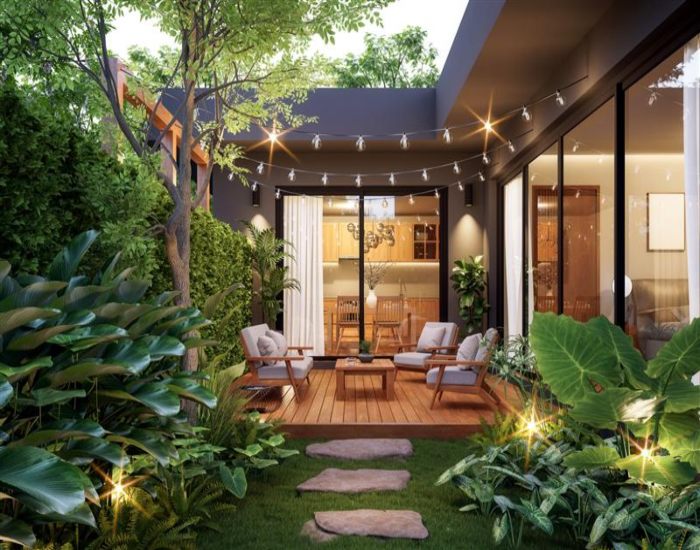
Creative Patio Ideas Using Pavers for Outdoor Living Spaces
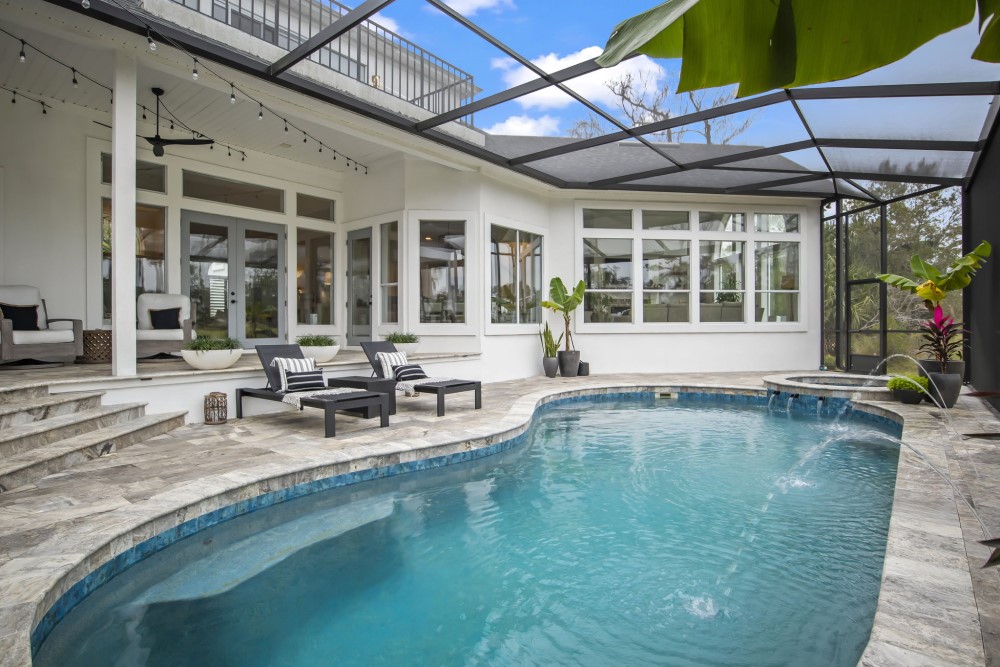
Plaster Options: Pebble vs. Quartz
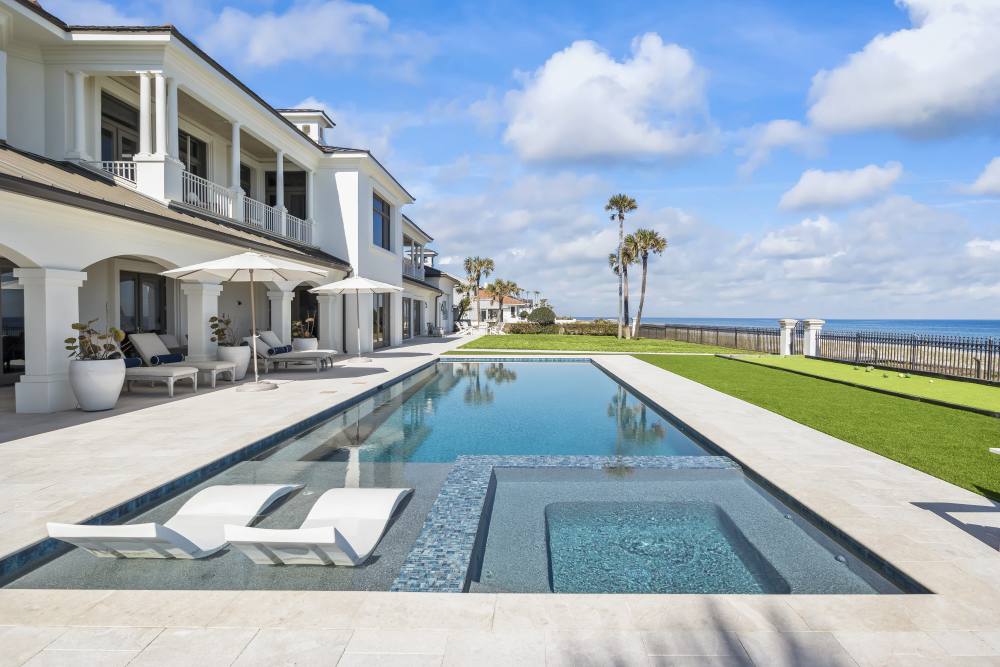
Choosing the Right Spa Spillway for Your Pool
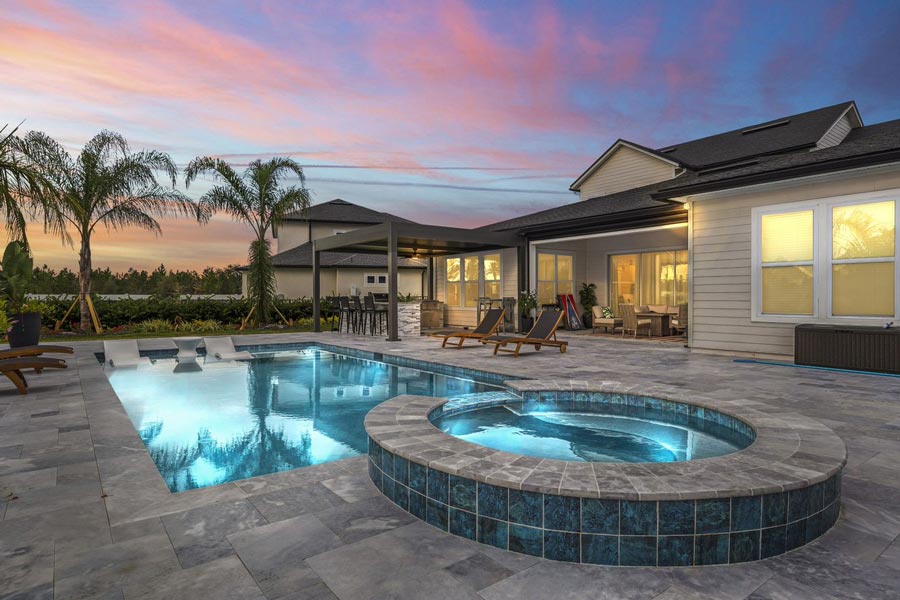
How Much Does It Cost to Build a Pool in Florida (2025 Price Guide)
